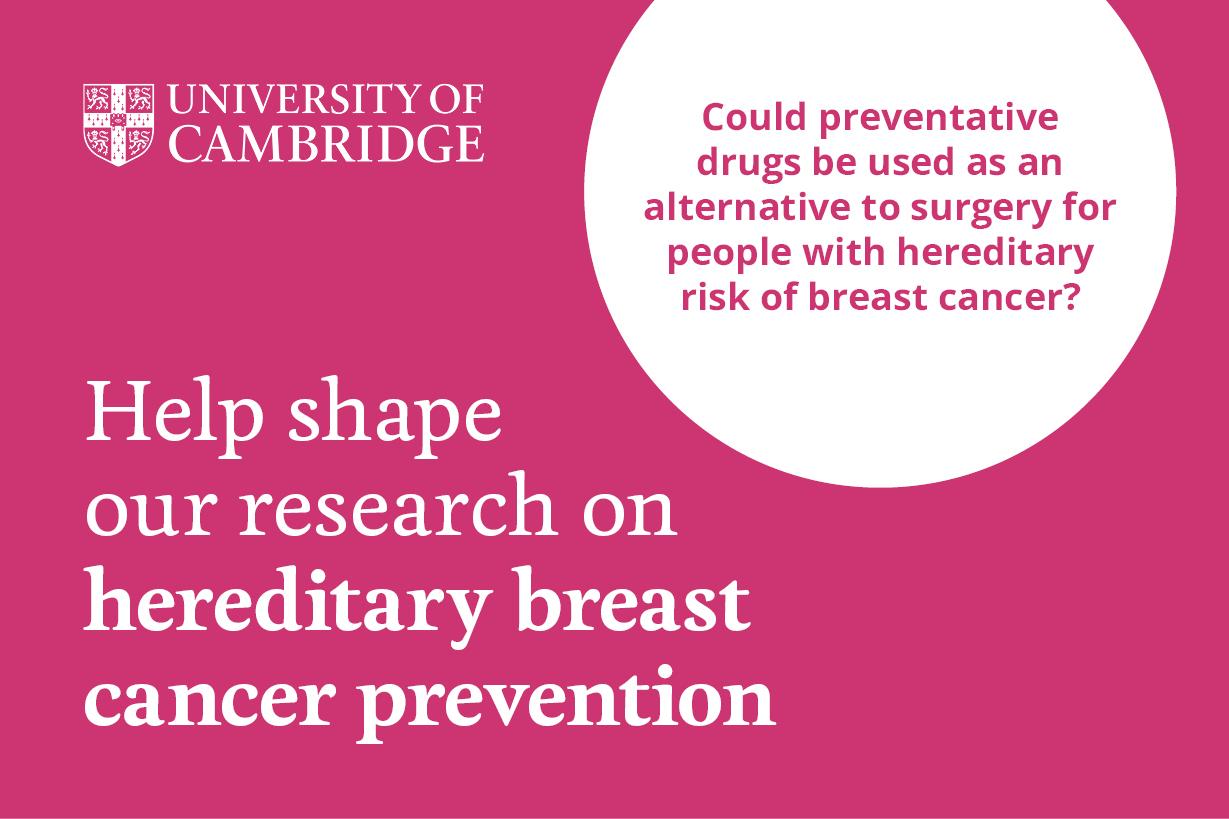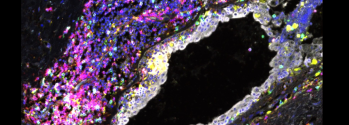
We are forming a patient advisory group to help shape our research on hereditary breast cancer prevention.
The background:
In 2013, actress Angelina Jolie announced that she had surgery to remove her breasts as a preventative measure against cancer. Jolie found out through family history and genetic diagnosis that she had a fault (mutation) in a gene called BRCA1 which meant she had an 80% chance of developing breast cancer – 10 times the risk of the general population. Her openness led to an increase in awareness and in the number of double mastectomies (breast removal surgeries before cancer develops).
However, breast removal is a serious medical procedure which then raises the question: is there an alternative way to prevent breast cancer in BRCA1 carriers without having to undergo surgery?
What we are doing:
Professor Walid Khaled's research group at the University of Cambridge has been studying how BRCA1 mutations affect breast cells before any cancer is detected. In 2021 and 2024, we published studies that identified the earliest changes caused by BRCA1 mutations. Some of the changes we found could potentially be treated using drugs already available or under development.
We have now been funded by Cancer Research UK to test six of these drugs in a lab model of BRCA1 breast cancer to see if we could prevent cancer development. A blood test developed in the lab could also identify who would benefit the most from these drug treatments. By the end of this project, we hope to have strong evidence to support testing the use of these drugs as prevention therapeutics in a clinical trial.
Why we want to form an advisory group:
People with lived experience of, and affected by, mutations such as BRCA1, breast cancer and treatments have valuable perspectives that we want to hear. Our patient advisory group will help shape our research and engagement plans and ensure they are relevant and beneficial beyond the lab.
We seek a small group with diverse experiences to work with researchers to exchange knowledge, review proposals and develop future activities. Members of our patient advisory group will be compensated for the time and expenses incurred working as partners on the project.
Interested? Learn more and download our information sheet.
You can express interest in joining the advisory group through our online form.


